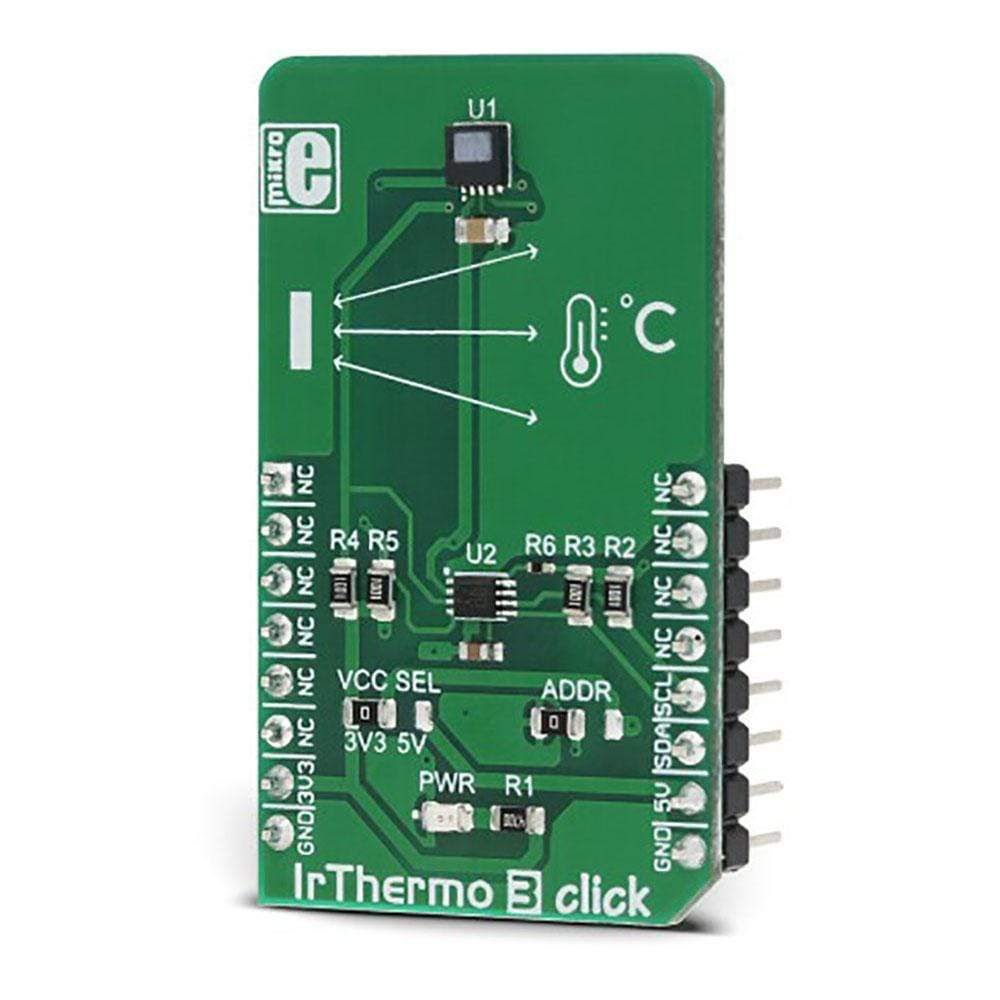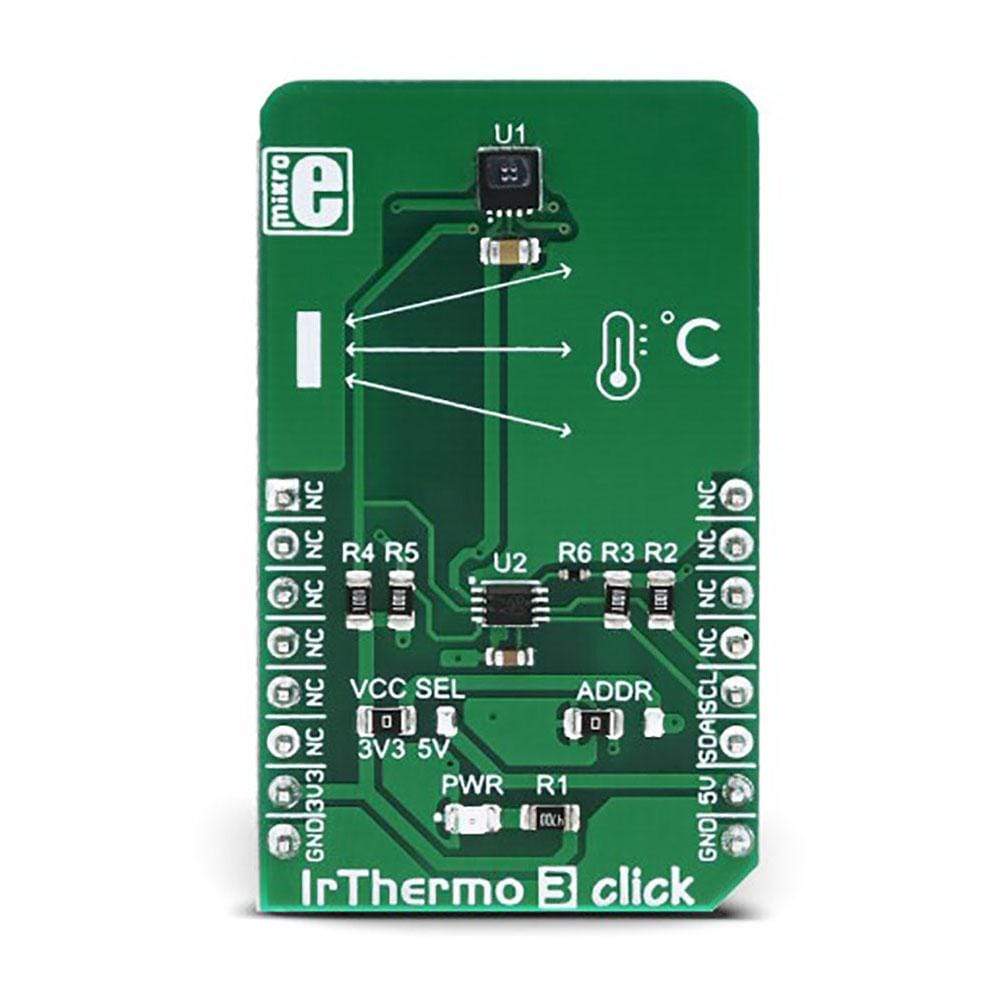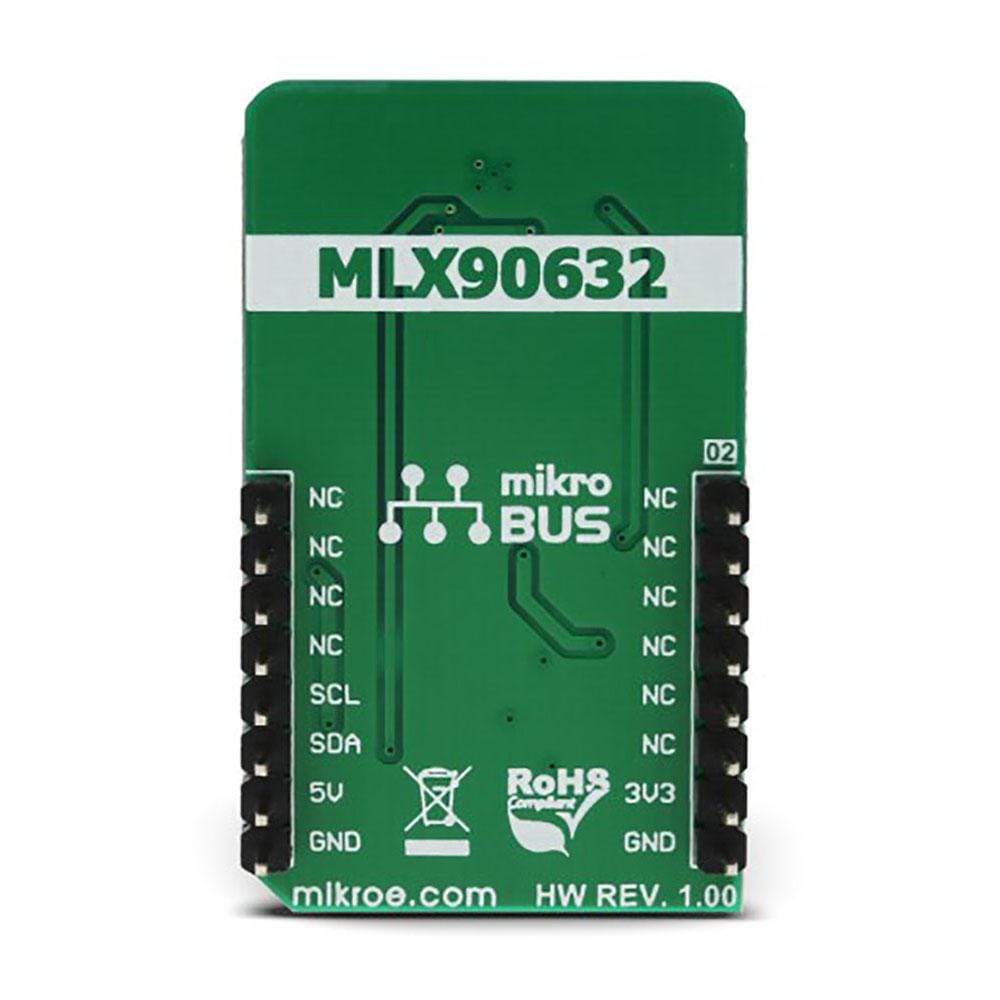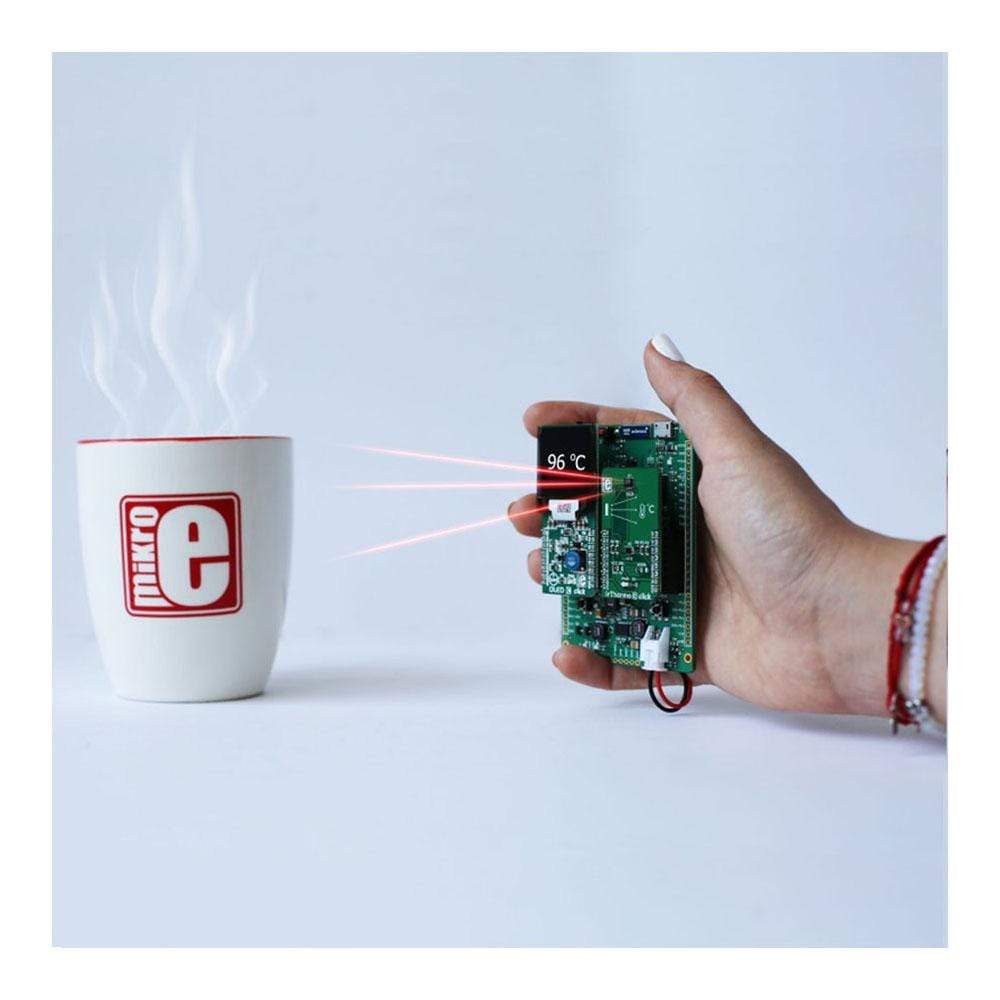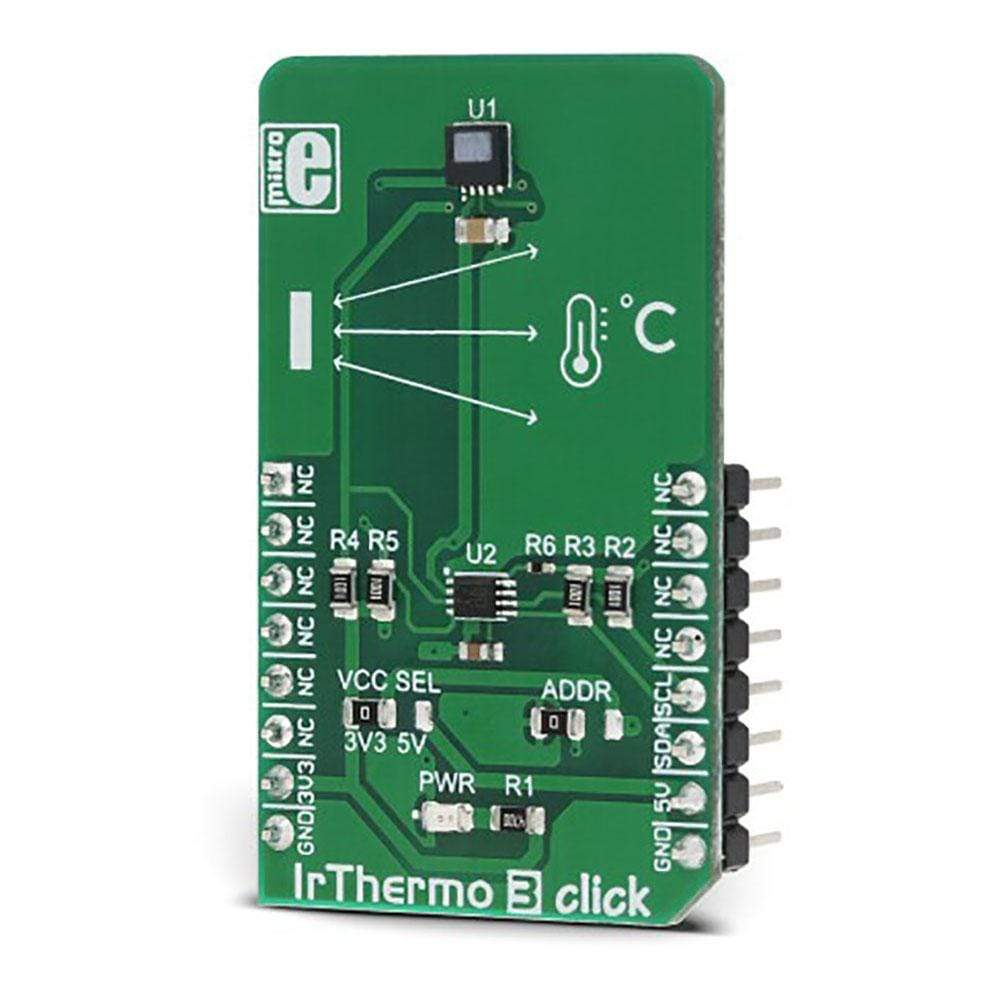
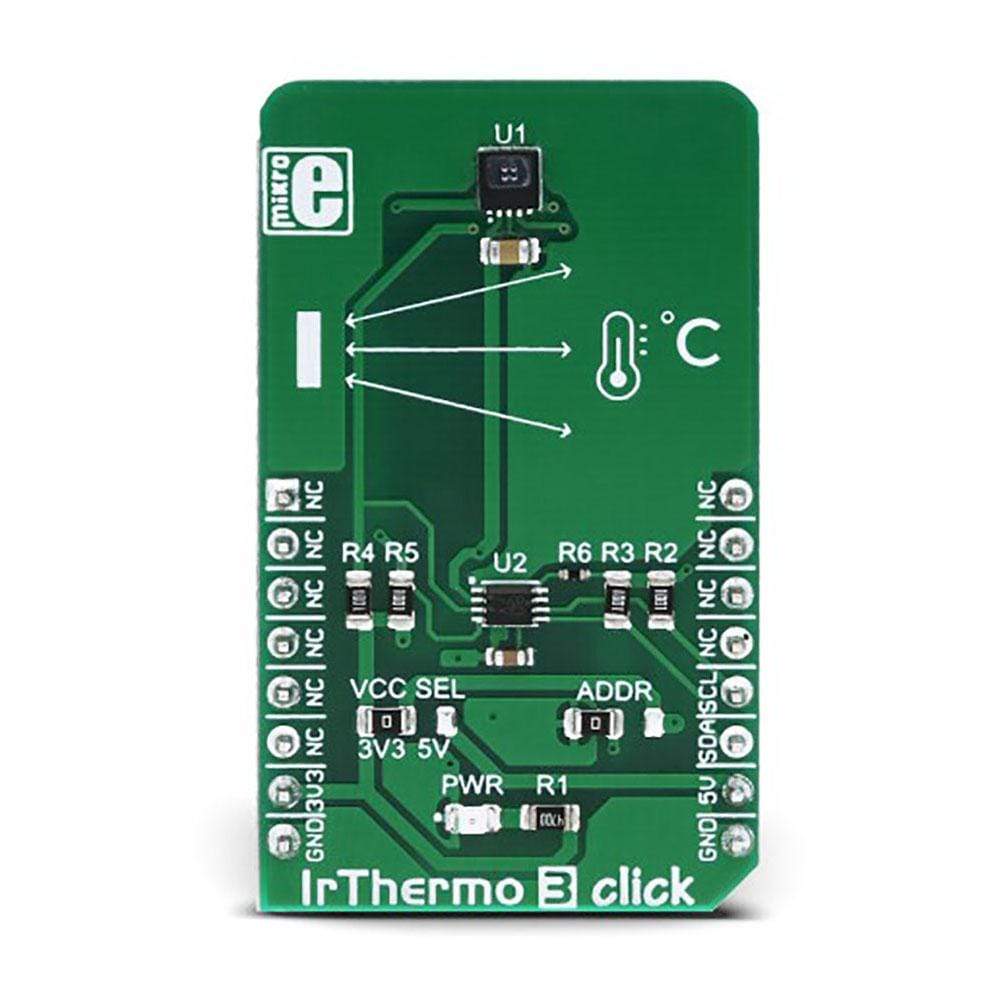
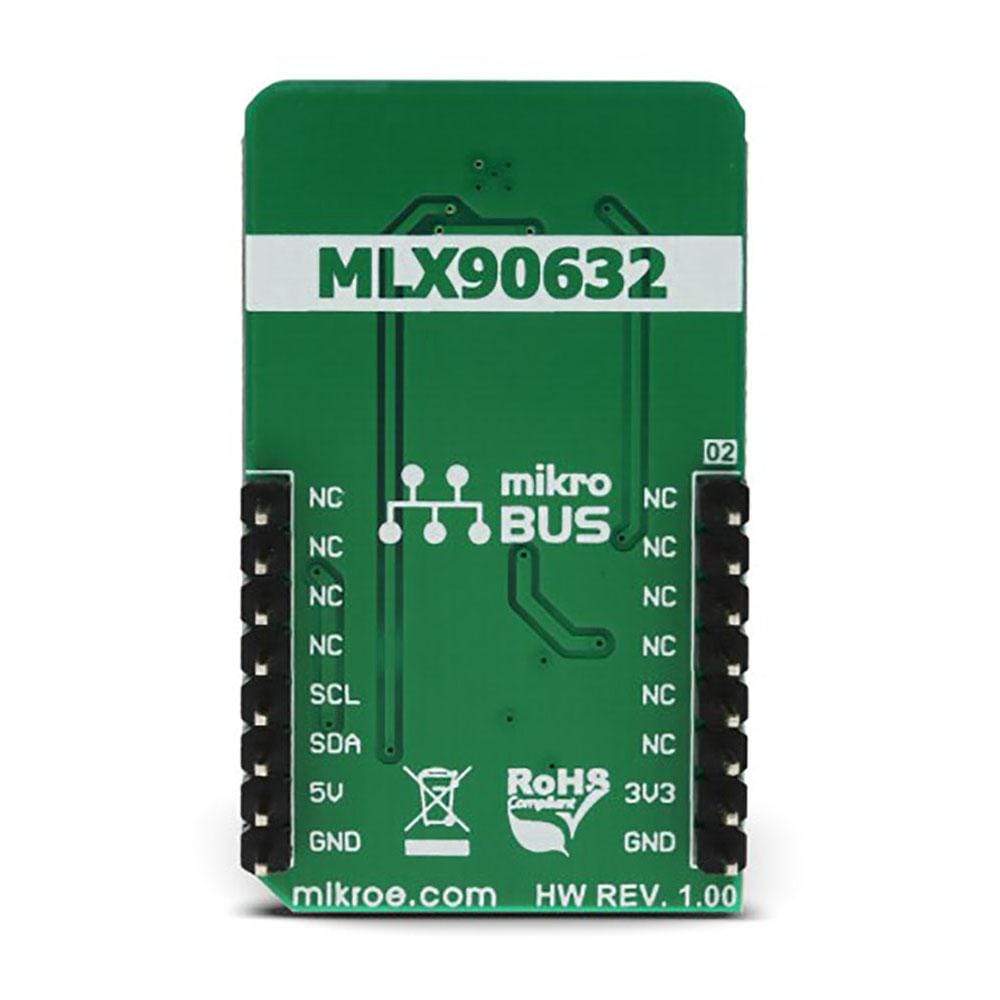
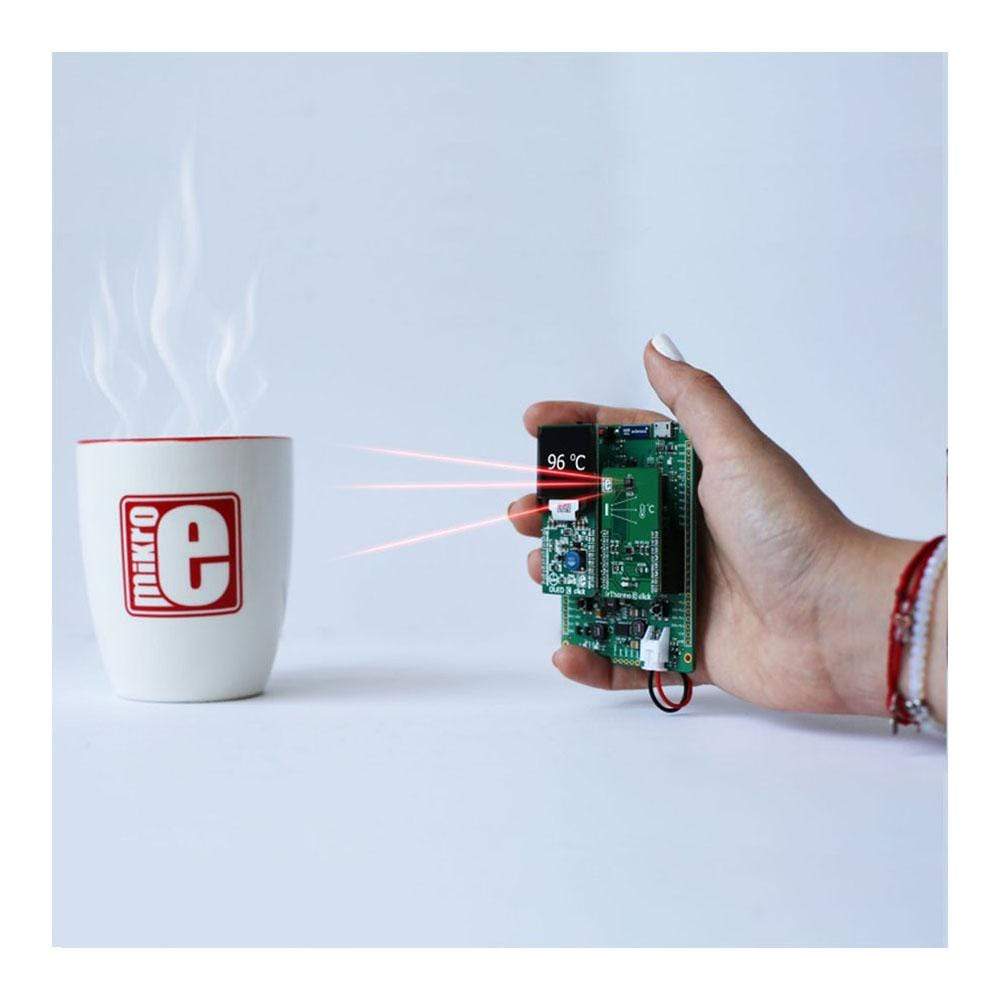
Overview
The IrThermo 3 Click Board™ is a device that allows contactless measurement of the object temperature. It uses a highly advanced MLX90632 FIR sensor, which detects the average temperature of objects within its field of view (FOV), which is typically ±25°. It is factory calibrated, with the calibration constants stored in its internal EEPROM. Besides EEPROM used for storing trimming values, device settings, and calibration constants, it has an additional RAM area that can be used for auxiliary measurement data storage. The integrated temperature sensor provides ambient temperature measurement, necessary for proper calibration.
The device is calibrated to sense objects with the temperature ranging from -20°C up to 200°C, and the ambient temperature ranging up to 80°C. The measurement resolution is 0.02°C. Measured data is available via the industry-standard I2C communication bus.
Downloads
Das IrThermo 3 Click Board™ ist ein Gerät, das eine berührungslose Messung der Objekttemperatur ermöglicht. Es verwendet einen hochentwickelten MLX90632 FIR-Sensor, der die Durchschnittstemperatur von Objekten innerhalb seines Sichtfelds (FOV) erkennt, das typischerweise ±25° beträgt. Es ist werkseitig kalibriert, wobei die Kalibrierungskonstanten in seinem internen EEPROM gespeichert sind. Neben dem EEPROM zum Speichern von Trimmwerten, Geräteeinstellungen und Kalibrierungskonstanten verfügt es über einen zusätzlichen RAM-Bereich, der zur Speicherung zusätzlicher Messdaten verwendet werden kann. Der integrierte Temperatursensor ermöglicht die Messung der Umgebungstemperatur, die für eine ordnungsgemäße Kalibrierung erforderlich ist.
Das Gerät ist so kalibriert, dass es Objekte mit Temperaturen von -20 °C bis 200 °C und Umgebungstemperaturen bis 80 °C erfassen kann. Die Messauflösung beträgt 0,02 °C. Die Messdaten sind über den Industriestandard-Kommunikationsbus I2C verfügbar.
| General Information | |
|---|---|
Part Number (SKU) |
MIKROE-3121
|
Manufacturer |
|
| Physical and Mechanical | |
Weight |
0.019 kg
|
| Other | |
Country of Origin |
|
HS Code Customs Tariff code
|
|
EAN |
8606018713387
|
Warranty |
|
Frequently Asked Questions
Have a Question?
Be the first to ask a question about this.

